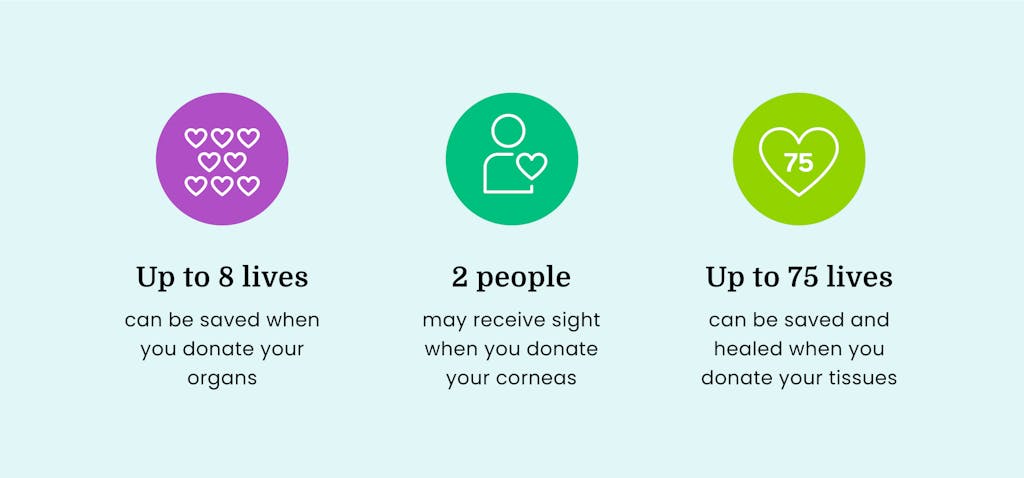There are many things that make us proud to be Texan, and the choice to be an organ donor and save lives is near the top. While many of us have already made that generous decision and registered as a donor, there are many of us who haven’t yet decided.
The first thing to know is that the choice to be a donor is up to you. That said, it’s important to make your decision based on facts, so we’ve compiled a list of Texans’ top questions about organ and tissue donation. Interested in learning how the process works? Check out this article that goes into more detail.
Who can be a donor?
Everyone has the right to make a personal decision about tissue, eye and organ donation. Registering as a donor is an important step to make your decision known. Regardless of your age, health, background, faith, gender identity, language or anything else, the decision is yours.
At the time of donation, medical suitability is determined to ensure the safety of donated organs. People of all ages and backgrounds can be donors, including those with common health conditions. So don’t rule yourself out – if you support donation, register today and tell your loved ones.
What can be donated?
One person can save 8 lives through organ donation, restore sight for up to 2 people through cornea donation, and save or heal up to 75 lives through tissue donation.
Organs include: heart, kidneys, pancreas, lungs, liver and intestines
Tissues include: corneas, eyes, skin, bone, heart valves, veins and tendons

Will registering to be a donor impact my medical care?
Absolutely not. Saving a person’s life is always the top priority for doctors, nurses, paramedics and emergency personnel, period. When you need medical care, every effort is made to save your life and no consideration is given to your donor registration status. It’s only after lifesaving efforts have been exhausted that donation becomes an option.
Additionally, access to the Donate Life Texas registry is strictly limited to the employees of organ, eye and tissue recovery organizations for the purpose of checking donation decisions. The professionals from the donation agency are completely separate from the medical professionals providing care in the hospital, and only become involved when death is imminent or declared.
Does donation impact funeral plans?
Funeral arrangements of your choice are possible, including an open casket funeral or viewing. The donor’s body is respected throughout the process and carefully prepared so that donation itself does not interfere with funeral plans.
Are there any costs to me or my family if I’m a donor?
No. All costs associated with tissue, eye and organ donation are covered by the recovery organization once death is declared and authorization for donation has been provided. However, the donor’s funeral costs remain the responsibility of the family.
Does my religion support organ donation?
All major religions support donation as a charitable and compassionate act that saves and enhances lives, or as a personal choice. For more specific information, check out the Donate Life Texas website and talk with your spiritual leader or faith community if you’re still looking for guidance.
Learn more about organ donation and how you can register as a donor today.
Have you registered as a donor?
Round up the registrations, Texas! Help those in need & register online today. It’s an easy way to make a big impact.






